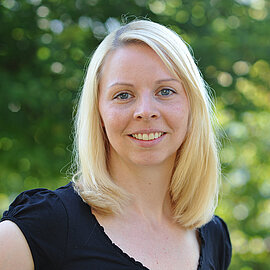More than 25 million hectares of former arable land have fallen fallow alone in Russia since the beginning of the transition process. Simultaneously, a considerable percentage of fertile soils in Russia, Kazakhstan and the Ukraine are under cultivation by gigantic agro-holdings. Both factors have multi-facetted impacts on the well-being of man and the environment. Hence, politics and academia are focusing increasingly on analyses and development of solution strategies for sustainable food production and rural development while minimising threats to biodiversity and climate.
The IAMO Forum 2012 titled 'Land Use in Transition: Potentials and Solutions between Abandonment and Land Grabbing’ will be held from 20 to 22 June in Halle (Saale). The IAMO Forum 2012 will provide a platform to discuss cutting-edge research about main trends and impact factors as well as future prospects of land use in transition economies of Eastern Europe, the Former Soviet Union, and East Asia. Renowned international scholars and decision-makers in politics and business will discuss one focal topic per conference day in four plenary and 20 parallel sessions.
The IAMO Forum will kick off on 20 June with a plenary meeting on 'Land Use Transitions’ chaired by Peter Verburg, Head of the Department 'Spatial Analysis and Decision Support’ at the Institute for Environmental Studies, VU University Amsterdam, and Helmut Haberl, Associate Professor at the Institute of Social Ecology Vienna. Discussions will focus on the scope and direct causes of changes in land use. The conference will be rounded off by lectures on setting aside and fragmentation of farmland, extensification and intensification in agriculture and forest cover changes.
On Day 2, Jo Swinnen, Director LICOS and Professor of Development Economics at Catholic University Leuven, and Grigory Ioffe, Professor of Geography at Radford University, will deal with the topic 'Processes of Land Use Change’. This session will pick up and discuss processes, structures and factors of changes in land use and the resulting variety of impacts on food production, climate and the environment as well as flora and fauna habitats.
The concluding highlight of the IAMO Forum 2012 will on Day 3, 22 June: A panel discussion on 'Large-scale Farmland Investments and Land Grabbing’. Max Spoor, Professor of Development Studies at the International Institute of Social Studies in The Hague, World Bank Economist Klaus Deininger, the President of the Ukrainian Agribusiness Club Alex Lissitsa and Christian Ebmeyer of the Russian agricultural enterprise EkoNiva will discuss challenge and appropriate handling of a large-scale land purchase and lease by foreign investors. Their theoretical and practical findings shall be used to elaborate key solution strategies for sustainable land use and publicise results beyond science.
The IAMO Forum 2012 will be hosted by the Leibniz Institute of Agricultural Development in Central and Eastern Europe (IAMO) in collaboration with Geomatics Lab at Humboldt-Universität zu Berlin and SILVIS Lab at University of Wisconsin-Madison and is supported by DFG and the Ministry of Science and Economic Affairs Saxony-Anhalt.
Text: 3,289 characters (with spaces)
| Press Release 08/2012
Post-socialist Land Use between Abandonment and Land Grabbing
IAMO Forum 2012: 'Land Use in Transition: Potentials and Solutions between Abandonment and Land Grabbing'

About IAMO
The Leibniz Institute of Agricultural Development in Transition Economies (IAMO) analyses economic, social and political processes of change in the agricultural and food sector, and in rural areas. The geographic focus covers the enlarging EU, transition regions of Central, Eastern and South Eastern Europe, as well as Central and Eastern Asia. IAMO works to enhance the understanding of institutional, structural and technological changes. Moreover, IAMO studies the resulting impacts on the agricultural and food sector as well as the living conditions of rural populations. The outcomes of our work are used to derive and analyse strategies and options for enterprises, agricultural markets and politics. Since its founding in 1994, IAMO has been part of the Leibniz Association, a German community of independent research institutes.
Leibniz Institute of Agricultural Development in Transition Economies (IAMO)
Theodor-Lieser-Str. 2
06120 Halle (Saale)
Germany
www.iamo.de/en
IAMO on Facebook: www.facebook.com/iamoLeibniz
IAMO on Twitter: https://twitter.com/iamoLeibniz
